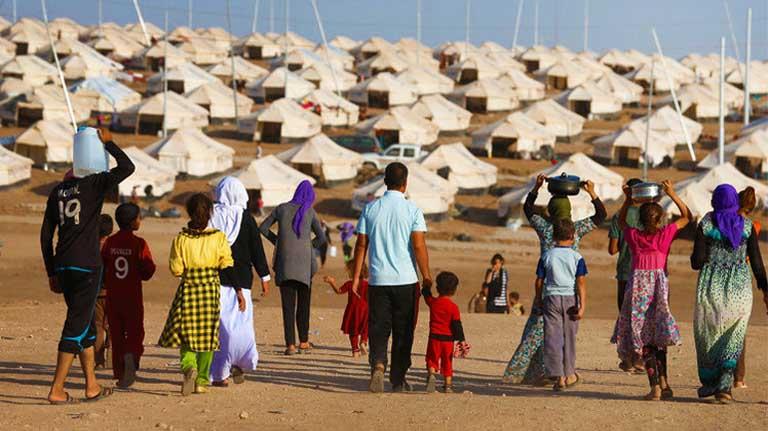
In a recent report, the non-governmental organization Oxfam expected famine to rise by a third in the worst climate zones, and explained that the number of climate migrants worldwide may rise to 216 million people by 2050, noting that the response of rich countries to these challenges is still much less than expected.
In a report on climate change and its impact on water flow in Africa, the Middle East and Asia, issued on Saturday, August 24, Oxfam indicated that famine is expected to rise by a third in 10 of the worst climate regions in the world, namely Somalia, Haiti, Djibouti, Kenya, Niger, Afghanistan, Guatemala, Madagascar, Burkina Faso, and Zimbabwe, by 2050 as a result of climate change.
Oxfam added on its Twitter account that climate change may cause the number of climate migrants to reach 216 million globally by 2050, including 86 million in sub-Saharan Africa.
The report addressed the devastating effects of the water crisis caused by global warming, and the alternating waves of floods and droughts, which are always more violent in Africa, the Middle East and Asia, which will lead to an accelerated increase in the spread of hunger, forced displacement, and epidemic outbreaks.
Oxfam has warned that the world’s current population of 2 billion people without access to water will rise to 3 billion by mid-century, due to the effects of climate change on water availability in wider and more affected areas.
Despite this situation and these expectations, donor countries funded only 32% of the requests of the United Nations, which launched calls to raise $3.8 billion to ensure access to clean water and adequate health services in the most affected areas, leaving the countries most at risk of water scarcity without the resources needed to invest in basic and adequate water infrastructure.
Oxfam added, “Rich countries that cause a lot of pollution cannot continue to pretend that nothing is happening. On the contrary, it is vital that these countries work to immediately and radically reduce their emissions, and increase aid to the countries that are poorer and most at risk.” “We still have time to change direction, but we must act quickly.”
The organization urged governments to allocate significant investments to improve national water systems, and make this a political priority, while supporting the United Nations goal of allocating $114 billion annually to deal with the water crisis at the global level.





